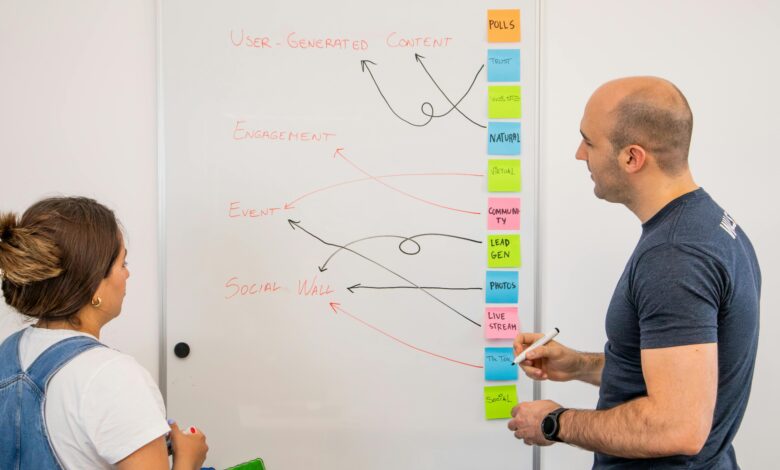Lead Generation: The Ultimate Guide to Attracting and Converting Customers

Lead Generation In today’s digital-driven marketplace, businesses live and grow on their ability to attract new customers. Lead generation is the process of identifying, attracting, and nurturing potential customers who show interest in your product or service. Whether you’re a startup looking for your first clients or an established company scaling your sales pipeline, mastering lead generation strategies is essential for sustainable growth.
Contents
What is Lead Generation?
At its core, lead generation is about building a system that consistently drives new prospects into your business. A “lead” is any individual or company that expresses interest in your offerings—through filling out a contact form, downloading an eBook, subscribing to a newsletter, or engaging with your business on social media.
For both B2B lead generation services and B2C businesses, the goal is the same: attract high-quality leads and convert them into loyal customers.
Why Lead Generation Matters
-
Steady Growth – With the right digital lead generation system, businesses can ensure a consistent flow of new prospects.
-
Better ROI – Targeting the right audience means less wasted marketing spend and higher conversion rates.
-
Scalability – From startups to enterprises, scalable lead generation solutions make expansion easier.
-
Competitive Edge – Businesses that leverage advanced tools and strategies attract more qualified leads and stay ahead of competitors.
Proven Lead Generation Strategies
1. Content Marketing
High-value content such as blogs, whitepapers, eBooks, and webinars helps attract potential leads. By answering customer questions and providing solutions, you build trust and authority in your industry.
2. Search Engine Optimization (SEO)
Ranking high on Google ensures that your business gets found by people actively searching for your services. Effective SEO drives organic sales leads for small businesses without heavy ad spending.
3. Pay-Per-Click Advertising (PPC)
Platforms like Google Ads allow businesses to target specific keywords and demographics. PPC can deliver qualified leads for startups almost instantly, though costs can be higher.
4. Social Media Lead Generation
Social platforms like LinkedIn, Instagram, and Facebook offer powerful tools to connect with audiences. From paid ads to organic campaigns, social media lead generation helps reach prospects where they spend their time.
5. Email Marketing
One of the oldest yet most effective methods, email marketing for lead generation nurtures prospects through personalized campaigns. Automated email sequences build relationships and push leads down the sales funnel.
6. Lead Magnets & Landing Pages
Offering free resources like checklists, trials, or discounts in exchange for contact information is a classic and effective lead generation method.
Best Lead Generation Tools
-
HubSpot – All-in-one marketing and CRM platform
-
Salesforce Pardot – B2B lead generation automation
-
Mailchimp – Email marketing & audience segmentation
-
LinkedIn Sales Navigator – Advanced B2B prospecting
-
OptinMonster – Conversion-optimized landing pages and popups
These best lead generation tools streamline campaigns, automate follow-ups, and help businesses capture more leads efficiently.
Lead Generation for Small Businesses and Startups
Small businesses often operate with limited budgets, so choosing affordable lead generation solutions is key. Strategies like local SEO, Google Business Profile optimization, and targeted Facebook ads can generate cost-effective sales leads for small businesses.
For startups, focusing on qualified leads rather than sheer volume ensures better conversion rates and faster growth.
Outsourcing Lead Generation Services
Not every business has the time or expertise to manage lead generation campaigns. That’s where professional B2B lead generation services come in. Outsourcing can:
-
Provide access to proven tools and expertise
-
Deliver pre-qualified leads directly to your sales team
-
Free up internal resources to focus on closing deals
The Future of Lead Generation
As technology evolves, lead generation will rely more heavily on automation and AI. Expect trends such as:
-
AI-Powered Lead Scoring – Predicting which leads are most likely to convert
-
Chatbots & Conversational Marketing – Instant engagement with website visitors
-
Personalized Campaigns – Tailored content and offers based on customer behavior
-
Video & Interactive Content – More engaging formats to capture attention
The future of digital lead generation is about smarter targeting, deeper personalization, and higher efficiency.
Final Thoughts
Successful businesses don’t rely on chance; they build predictable systems for growth. By implementing effective lead generation strategies, leveraging best lead generation tools, and possibly partnering with professional lead generation services, you can consistently attract high-quality prospects and convert them into loyal customers.
Whether you’re a small business seeking affordable solutions or an enterprise scaling B2B lead generation services, mastering this process is essential for long-term success.
In the digital age, lead generation is not just about getting names on a list—it’s about building relationships, providing value, and creating opportunities for growth.

Christopher Dunlap, a food enthusiast from New Jersey, is currently writing for mtaste.net, a blog dedicated to exploring and reviewing food flavors, culinary trends, and taste experiences, sharing his passion with readers.




